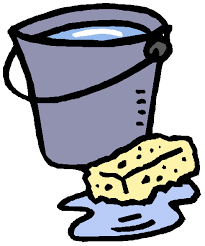记忆方法
将“absorb”想象为吸水的过程。图像化一个海绵或者布料吸收水分的样子,这样可以直观地记住“absorb”意味着吸收、吸纳的意思。
以上内容由AI生成, 仅供参考和借鉴
中文词源
absorb 吸收
前缀ab-,此处用于强调义。词根sorb,吸收,吮吸,拟声词。
英语词源
- absorb
-
absorb: [15] Absorb comes, via French absorber, from Latin absorbēre, a compound verb formed from the prefix ab- ‘away’ and sorbēre ‘suck up, swallow’. Words connected with drinking and swallowing quite often contain the sounds s or sh, r, and b or p – Arabic, for instance, has surāb, which gave us syrup – and this noisy gulping seems to have been reflected in an Indo- European base, *srobh-, which lies behind both Latin sorbēre and Greek ropheín ‘suck up’.
- absorb (v.)
- early 15c., from Middle French absorber (Old French assorbir, 13c.), from Latin absorbere "to swallow up," from ab- "from" (see ab-) + sorbere "suck in," from PIE root *srebh- "to suck, absorb" (cognates: Armenian arbi "I drank," Greek rhopheo "to sup greedily up, gulp down," Lithuanian srebiu "to drink greedily"). Figurative meaning "to completely grip (one's) attention" is from 1763. Related: Absorbed; absorbing.
权威例句
- 1. The material can absorb outward-going radiation from the Earth.
- 该物质可以吸收地球向外辐射的能量。
- 2. The banks would be forced to absorb large losses.
- 银行将被迫承受巨大的损失。
- 3. His ability to absorb bits of disconnected information was astonishing.
- 他吸收利用互不相关的零碎信息的能耐惊人。
- 4. Steel barriers can bend and absorb the shock.
- 钢制栅栏可以弯曲并能吸收冲击力。
- 5. We can't absorb those costs.
- 我们负担不起那些费用。

